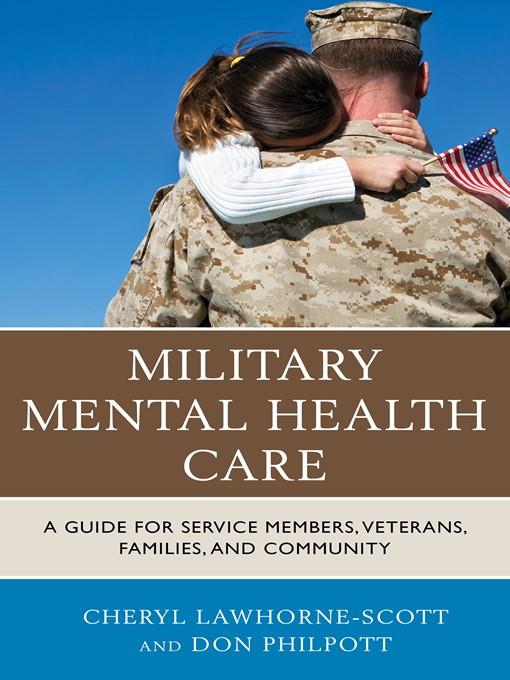
Military Mental Health Care
A Guide for Service Members, Veterans, Families, and Community
کتاب های مرتبط
- اطلاعات
- نقد و بررسی
- دیدگاه کاربران
نقد و بررسی

December 24, 2012
Mental health help for vets is abundant, but finding the right resource in a time of crisis can be tricky. Therapist Lawhorne-Scott and journalist Philpott (the duo behind the forthcoming Wounded Warrior Handbook) abet that search for soldiers and their families in a unique reference that pulls together information on treatment and support for a range of post-service psychological problems, from traumatic brain injury to substance abuse, anxiety, and sexual trauma. The authors present a particularly packed section on the treatment options for post-traumatic stress disorder, including types of counseling, recent medical findings, and an exhaustive—and somewhat dense and technical—look at anger management, an issue affecting soldiers with PTSD at a higher rate than those without. The manual also includes a detailed guide for families to hold meetings designed to help each member—as well as the vet—and a plan for families to face the changes and expectations that arise with a returning soldier. Given the tens of thousands of soldiers coming home from wars in Iraq and Afghanistan each month (a third of them with or likely to develop mental health problems), Lawhorne-Scott and Philpott’s guide is particularly timely.

April 1, 2013
Therapist Lawhorne-Scott and journalist Philpott (coauthors, The Wounded Warrior Handbook) state that "one in three returning warriors has or is likely to develop serious mental health and/or psychological issues that make it difficult for them to adjust to a normal environment." Directed at military service members, this is an easy-to-follow reference guide on mental health for returning veterans. Chapters cover problems (e.g., PTSD, head injuries), symptoms (e.g., stress, anger, depression), social issues (e.g., suicide, homelessness, family relationships), resilience, and wellness. Self-help sections include bulleted lists, suggested websites, and resources from the Veterans Administration and other service agencies. Each chapter is designed to stand alone, so there is some repetition; for example, anger appears as the subject of one chapter, while the information is duplicated in the chapter on PTSD. VERDICT A thorough starting point for families, veterans, and caregivers seeking information on military service-related mental health issues.--Lucille M. Boone, San Jose P.L., CA
Copyright 2013 Library Journal, LLC Used with permission.

Starred review from February 1, 2013
Combat is one of life's most significant traumatic events. And in a manual that is both thorough and tender, the authors provide a splendid service to veterans, their families, and the mental health professionals who compassionately care for them. Recommendations and resources pertaining to anxiety, depression, sleep disturbances, anger management, suicide prevention, and drug abuse fill the book. An extensive presentation on post-traumatic stress disorder includes symptoms and various treatments of the problem. The discussion of traumatic brain injuryconsidered the signature wound of the current war on terroris adeptly handled. A stellar section on grieving reminds us that grief has its own time line and comes in many forms: normal, pathological, acute traumatic, and complicated. Ways to aid bereaved military children are offered. A chapter on homelessness highlights a very sad situation: every night an estimated 67,000 veterans in America are homeless. The stigma surrounding mental health issues contributes to the silent suffering of veterans returning from the wars in Afghanistan and Iraq. Some feel shamed by their vulnerability; others feel guilt and blame themselves. This guide makes it clear that every veteran deserves to get better, and highlights the various kinds of help available to military personnel.(Reprinted with permission of Booklist, copyright 2013, American Library Association.)

























دیدگاه کاربران